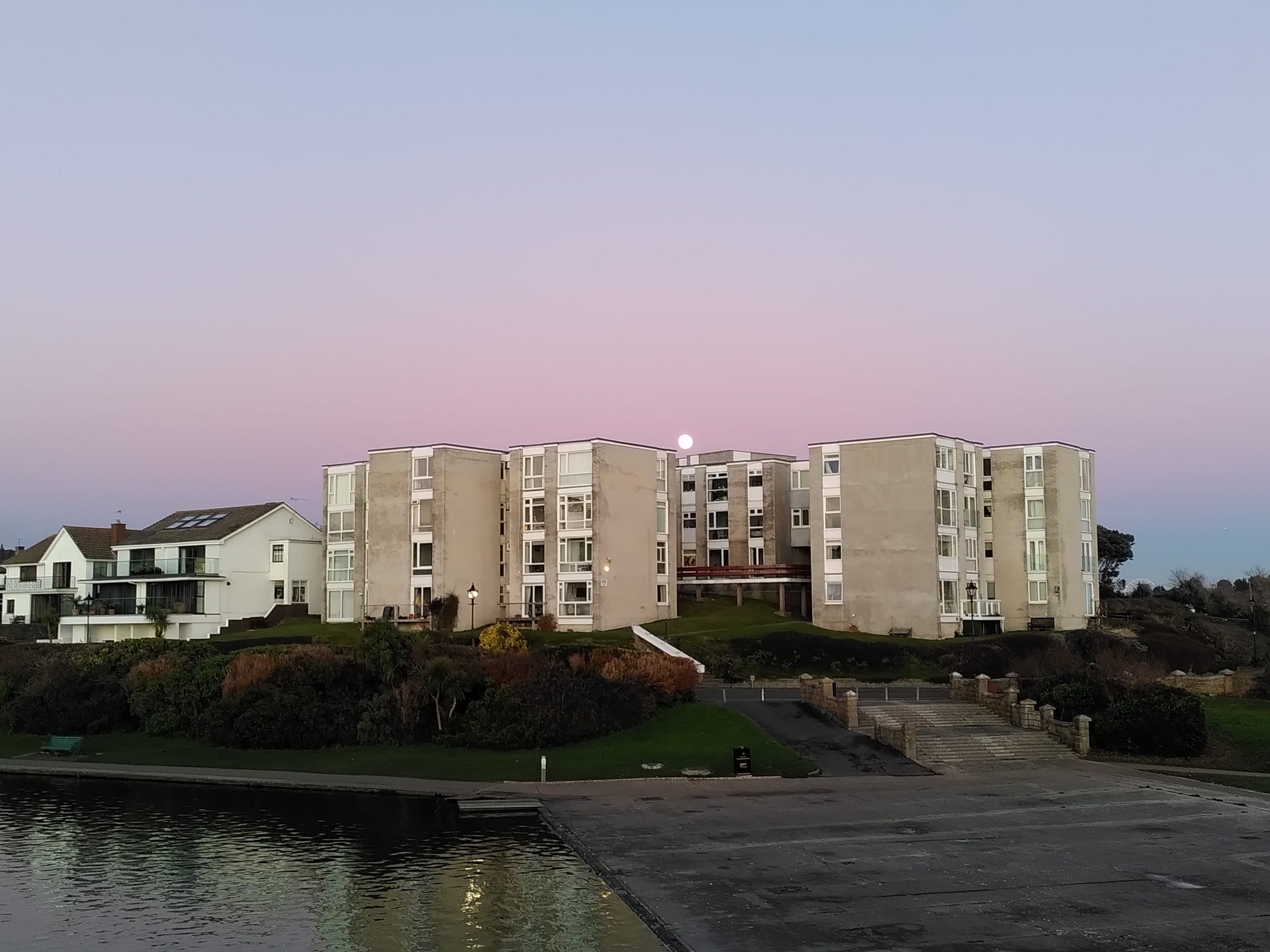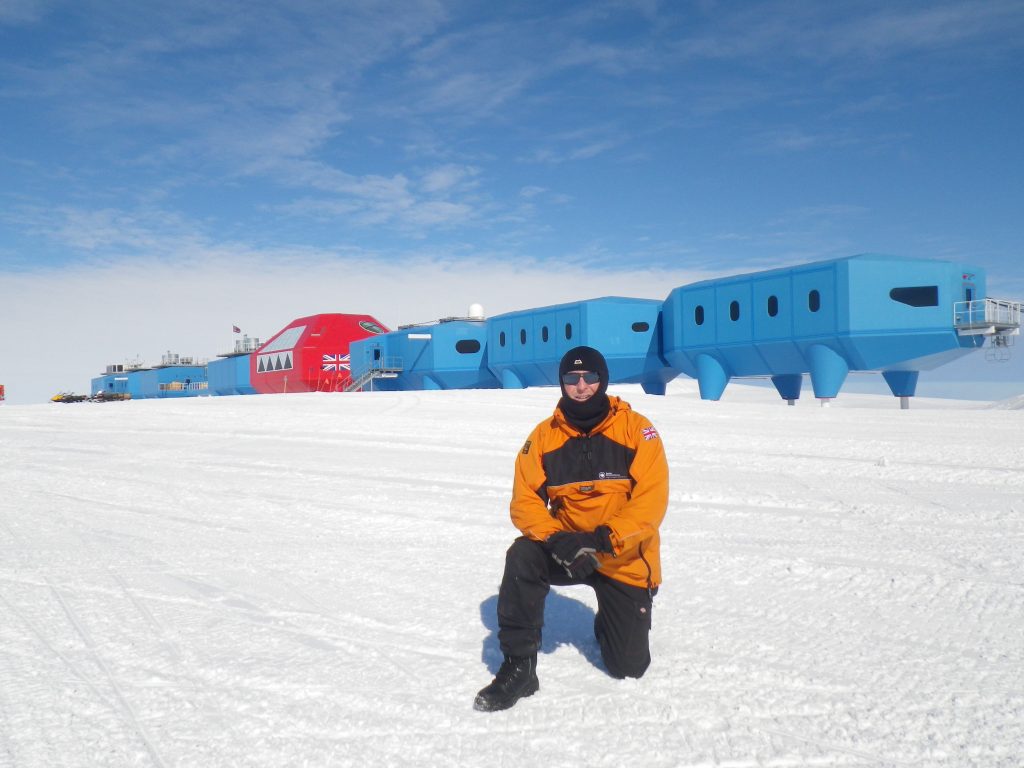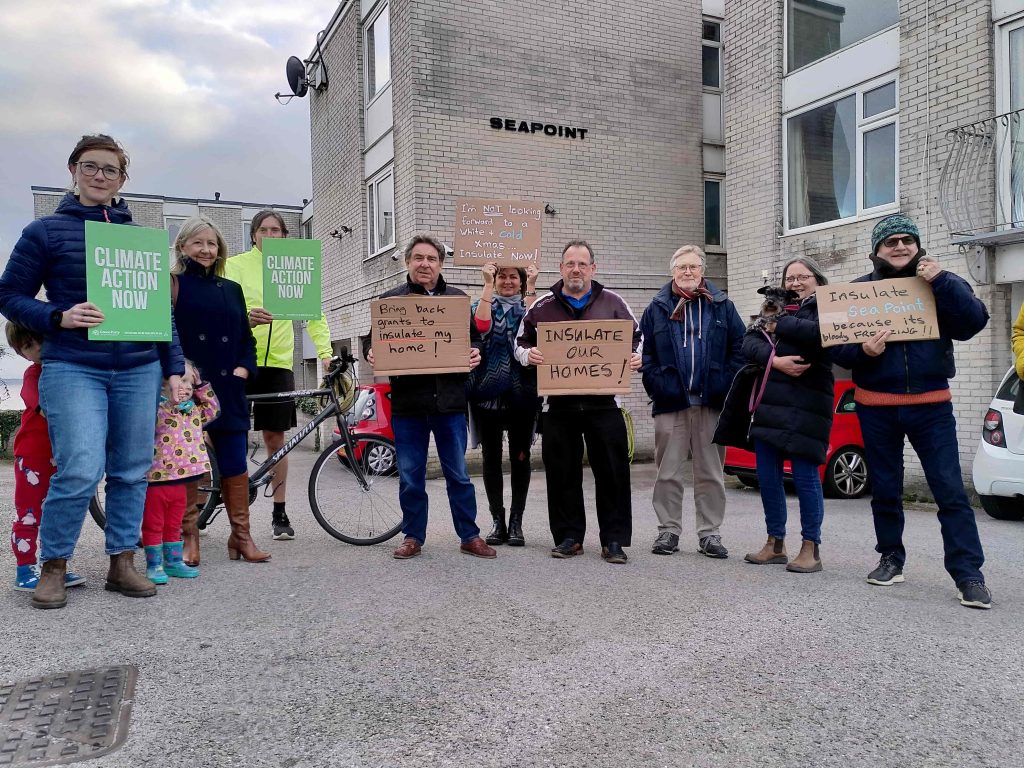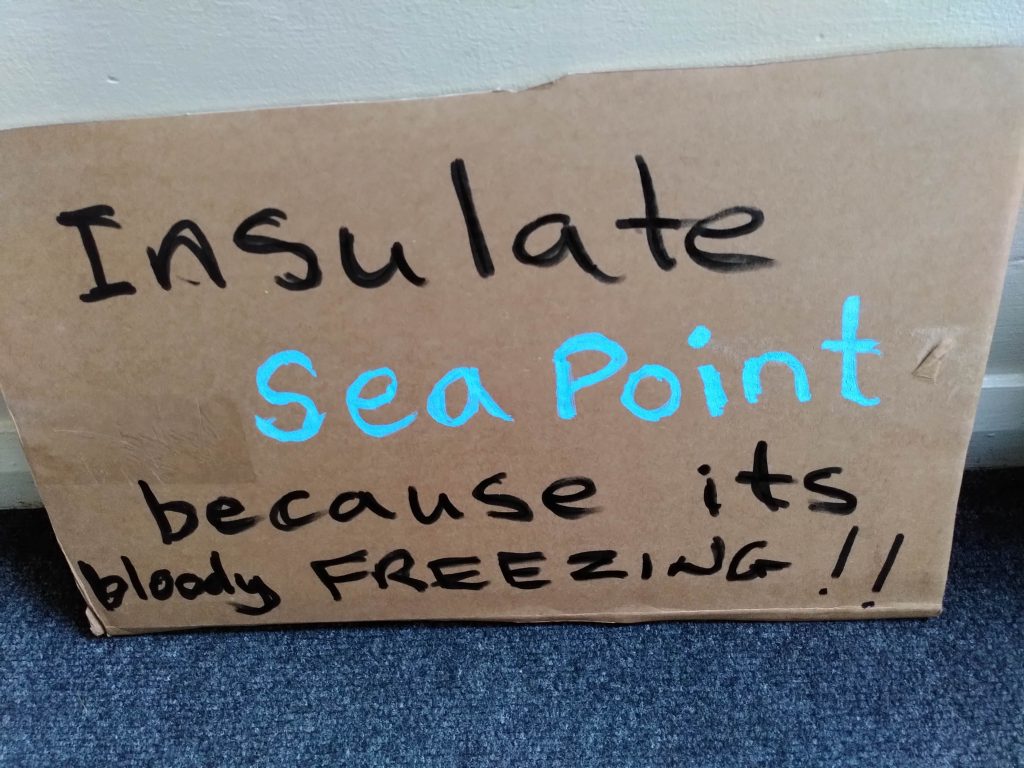A former British Antarctic Survey worker saw the success insulation in even colder climes
ELECTRICIAN Robert Curtis lives in the Seapoint block of flats just yards from the Barry shoreline.
His south-facing flat feels the maximum force of the winter winds blasting in from the Bristol Channel.
So when it comes to the the cost-of-living crisis and the sky-rocketing energy bills, he feels he is particularly directly hit.
To make matters worse, Robert’s flat has an energy efficiency rating of band E – and that puts him in official fuel poverty.

Fuel poverty is measured by the government as people who live in “property with a fuel poverty energy efficiency rating of band D or below” using the Low Income Low Energy Efficiency (LILEE) indicator. E-rated housing is the lowest possible energy rating landlords can legally provide tenants.
After being quoted £15,000 to insulate his flat, Robert decided to take matters into his own hands and started a petition calling for an end to fuel poverty in Wales.
He feels that there is not enough government support for low-income working people, as well as those on benefits, to combat the ‘heating or eating’ crisis.
The petition has stuck a chord and will be debated in the Senedd on January 9, 2023.
“I’ve started a petition to represent myself and my neighbours”
Robert’s time working as an electrician for the British Antarctic Survey alerted him to the progress made by other European countries in addressing fuel poverty.
The 58-year-old feels that Welsh Government has no excuse for ignoring fuel poverty if Antarctica can support its tenants with warm housing on the coldest continent on Earth, where the thermometer drops as low as -90°C in the winter and peaks around 8°C in the summer.

“Over in Antarctica, they have a superior level of insulation in their homes to cope with extreme weather,” he says.
“With the cost-of-living crisis, this becomes even more important.
“It’s easy for them (the Senedd) to blame Westminster but right now it’s as much a Welsh government problem as it is a Westminster problem, so I’ve started my own petition to represent myself and my neighbours.”

What support does Welsh government offer?
The Welsh government’s Nest scheme assists low-income people with energy bills but Robert feels that this is not enough.
He is also pleased that the Conservative government in Westminster has increased benefits in line with inflation but insists that more help is needed for people like him.
“It’s not just poor people in the usual sense, it’s everyday people that work, and there are a lot of working Welsh people, including the majority of us at Seapoint,” he says.
What does the petition demand?
“I do not expect a 100% grant, but some assistance would go a long way for us working people,” he says.
“All we’re asking for is a 25-50% insulation grant so that our homes can keep us cool in summer and warm in winter.

“The media loves to focus on the supermarket prices in this cost-of-living crisis but there’s a lot more to it than that.
Insulation isn’t a sexy phrase, and that’s why the local media doesn’t mention it, but improvements will help everyone that’s struggling in this cost-of-living crisis.
External insulation is actually far cheaper than cavity wall insulation in the long term.”
Hope
With the public becoming very familiar with the climate emergency in the last decade, Robert says he hopes the Senedd will be receptive to his petition.
“Better insulated homes benefit the environment as well as the consumer.”
Robert’s petition will be debated in The Senedd on January 9.
- If you are suffering from fuel poverty and fulfil Nest’s criteria, please contact them here.
- Here is an open petition fighting against fuel poverty.



